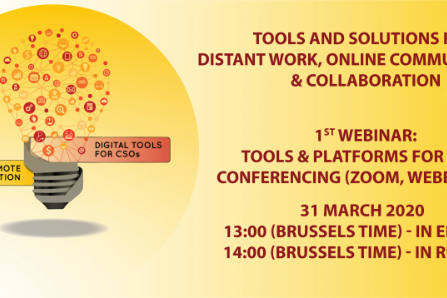We’ve been again been digesting the various articles on 2019 elearning trends and technologies to look out for in order to make the most of online training. We’ve combined the thoughts and predictions from many leading experts with our own observations and market research.
There are a few recurring topics from the last 2 years, while in some areas the market has moved on (the demand for mobile learning is a given now right?) and we can look ahead at some exciting new ideas and developments. So here’s our take on what might be a little different for elearning in 2019 and 2020.
Online Proctoring / Remote Invigilation
The remote invigilation of exams will grow very rapidly in 2019 and over the next few years. So much of the elearning market is still compliance-led, and many organisations will want their testing procedures to offer the same geographical freedom as the elearning itself.

Online / proctoring / remote invigilation platforms will integrate with LMS, assessment platforms and other learning solutions. 1 There are several interesting companies to look out for in this market, including ProctorU who offer live proctoring and automated, AI-driven cheating detection.
Interesting newcomers to the market, Proctor360 have developed an innovative, lightweight headset for the candidate to wear during testing, which features a 360 degree camera. This offers full-room and multi-angle candidate / environment monitoring to make remote assessments as reliable as brick-and-mortar testing. The headsets will be shipped to candidates, to be returned for reuse after the exam. Proctor360 are currently seeking seed funding and offering shares to the public, so this could be an interesting opportunity for investing in the growth of this area of elearning.
As well as technology that helps to increase trust in the validity of remote assessments, anything that increases convenience for both examining bodies and candidates could help to accelerate the growth of the online proctoring market. After all we’ve seen tech create convenience and transformation in other industries, such as Entertainment (Netflix), Food (Just Eat) and Transport (Uber).
Increasing L&D and eLearning Recruitment
We note increased recruitment activity for tech savvy L&D professionals: It appears companies are increasingly recruiting Learning and Development professionals again, after several years of restrained budgets. Let us hope the budget stretches beyond recruiting people and the new recruits have a budget!
Why all this recruiting? Companies are increasingly concerned about skills shortages and skills retention is a growing issue in many organisations and many forward-thinking organisations are waking up to the fact that elearning offers a way to equip their staff with just in time information and roll out training to a disparate global or remote workforce.
We hope that increasing L&D recruitment will result in increasing elearning expenditure. As new L&D professionals will have the task of training workforces, and elearning is a cost-effective solution to this challenge, we believe that increased recruitment of L&D professionals is a good thing for the elearning industry.
eLearning for CSR
Alongside the cost-saving benefits, elearning has always been a contributor to corporate social responsibility (CSR) agendas. It allows companies to reduce their carbon footprint from the transport of trainers to learners and vice versa, as well as reducing waste from printed materials.
A small group of companies are now creating and sharing elearning content specifically for the purpose of social good.
For example, Prepared to Save a Life is an excellent campaign 2 that gives learners an education in the fundamentals of emergency life-saving through a short online course that takes less than an hour.
We hope and expect that more elearning companies and other organisations with the relevant in-house expertise will combine the ability to create and distribute online training quickly, easily and cheaply with their unique subject matter expertise, in order to provide learning opportunities for social good.
System Integrations
Integration will accelerate as LMS begin to integrate more deeply with CRM, HRIS, remote invigilation and talent management platforms. We will see Tom Davenport’s vision of a world characterised by free flowing information across organisations and their multiple information systems. This information ecology will generate new possibilities for elearning, with the power of analytics coming through using the vast amounts of data being generated (by CRMs in particular). Caliper Analytics 3 will increase in popularity in 2019.
This vision or requirement is likely to be the driver for a growing number of xAPI deployments that will be a key component in making imaginative and interesting integrations take place between LMS, LRS and CRM in particular.
In some ways the LMS-LRS architecture will be less visible but much more important. Above all it will be integrated within the organisation as part of the extended enterprise.
Learning Experience Platforms (LXP / LEP)
eLearning is no longer just a vehicle for must-do training for regulatory compliance, health and safety or company procedures. Progressive companies are seeing the availability of on-demand learning as a way to keep their staff engaged, fulfilled and always learning if the want to, rather than only if they must.
Learning Experience Platforms put staff in control or their professional and personal development 4 in addition to the essential training that is rolled out by the HR and L&D departments.
We’ll see more and more savvy companies create libraries of elearning content, many of which will include AI-driven recommendation engines within an LXP / LEP, as a way to keep their best staff happy, engaged and on-board.
eLearning for Sales, Marketing & Customer Retention
We believe that an under-used application for elearning is as a sales, marketing and customer retention tool – especially for IT and software companies.
For well over a decade, numerous studies have been reporting that the majority of IT projects fail and key reasons include poor communication and lack of stakeholder buy-in.
All technology is designed to make our lives easier, but for this to become a reality, the intended user needs to be sold on the likely benefits and the fact that the learning curve of a new system will be worth the initial pain.
Otherwise, new products and services will be left to gather dust while people struggle on with their existing workloads.
There are a number of good add-on solutions 5 that allow organisations to create software demos and training tailored to the needs of their staff. However, the success of these solutions is dependent on how well they are implemented – and rolled out within an organisation as, yes, an IT project.
Software companies who want to take control of their customer onboarding and customer retention success will make built-in elearning a key part of their marketing strategy.
Day One Technologies is an elearning company we are seeing make strides in close work with IT and software providers to help make their customer onboarding and retention a success.
In 2019 and beyond, we expect to see more and more IT and software projects using elearning to improve communication and implementation processes.
1 See our updated report on the computer based assessment and online proctoringmarket.
2 ‘Safe a Life’ campaign by Virtual College.
3 IMS has developed Caliper Analytics.
4 Read our report on the top learning experience platforms from our market research.
5 Read our report on software training solutions providers.
Source: Learning Light





Comment